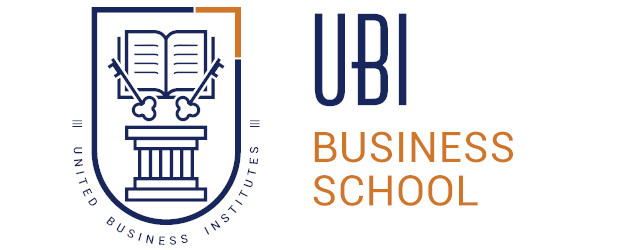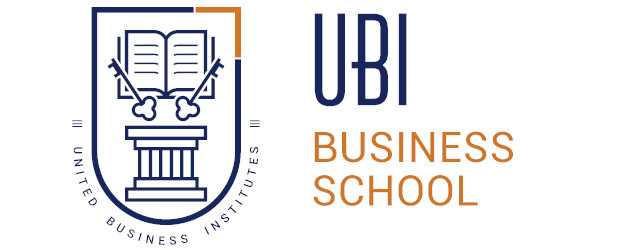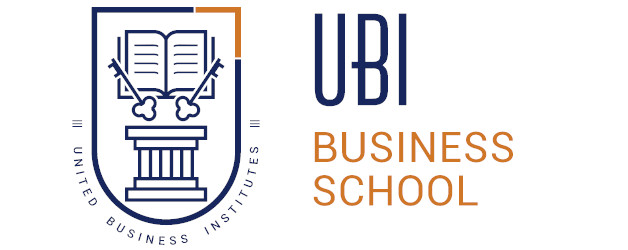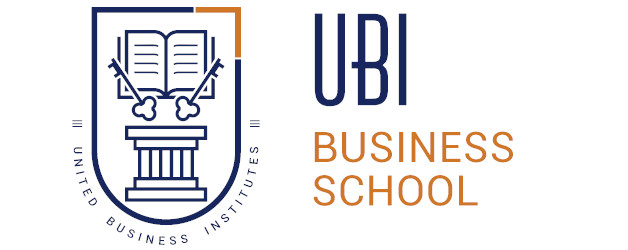UBI HyFlex Earns Top Accreditation for Online LearningQuality Online Learning: A Transformative Tool for Equitable Access to Knowledge
Over the past decade, online education has evolved from a marginal alternative into one key modality for higher and executive education worldwide. Beyond its logistical convenience, its structural importance has been amplified by advances in instructional design, learning platforms, and active methodologies. However, not all online education is created equally. The difference between a superficial experience and a truly formative one lies in the strategic integration of pedagogy, technology, and focus on personal/professional development.
Recent studies confirm that high-quality online education programmes can be as effective—or even more effective—than traditional face-to-face education. According to a comprehensive review carried out by Zawacki-Richter et al. (2023) well-designed online courses produce comparable learning outcomes while offering added value in areas such as learner autonomy, critical reflection, and digital skills. Student-centred design, meaningful interactivity, and personalised academic support are key success factors.
Moreover, quality in online education has been increasingly recognised as a strategic driver to close geographic and socioeconomic gaps. UNESCO (2024) underscores that when digital learning is both accessible and of high quality, it becomes an “educational equaliser,” allowing students from rural regions, developing countries, or underserved communities to access excellence that was once reserved for urban elites. But this redistributive potential is only realised when online programs meet international standards of academic rigour, assessment, and recognition.
Institutions such as the World Bank (2023) and McKinsey & Company (2022) point to deep structural challenges in regions with limited access to in-person universities, especially in Africa, Southeast Asia, and Latin America. According to McKinsey, over 60% of young people in low- and middle-income countries lack access to higher education aligned with the demands of the digital economy. In this context, quality online education is not just a pedagogical option—it is a strategy for economic development and social cohesion.
The recent evolution of artificial intelligence, data analytics, and adaptive learning systems has made it possible to personalise the learning journey based on each student’s level, pace, and context. This is particularly critical in low-infrastructure settings, where traditional education cannot scale without heavy investment. As Kearns and Reupert (2025) note, “the combination of high-level content, digital mentorship, and flexible access is redefining the very scope of the right to higher education.”
Ultimately, when implemented with excellence, online education becomes one of the most powerful tools of the 21st century, ensuring equitable access to knowledge, reducing territorial inequalities, and empowering communities historically excluded from global academic systems.
HyFlex: Made Around You by UBI
In a world where knowledge is the primary engine of personal and societal development, access to flexible, high-quality higher education is no longer a luxury—it’s an urgent need. UBI’s HyFlex (Hybrid+Flexible) model is an advanced pedagogical response to this challenge, enabling students to decide how, when, and from where they learn, without compromising academic standards or engagement.
HyFlex is specifically designed to support a wide range of contexts, including remote regions, students with professional or family responsibilities, or those with limited mobility. Its core strength lies in offering true freedom of choice: students can attend classes on campus, join live online, or study asynchronously, with the assurance that all formats lead to the same learning outcomes and uphold the same standards of quality (Kumar et al., 2025).
Far from being a shortcut, this flexibility demands a sophisticated instructional architecture and a high level of faculty engagement. Yet the benefits are evident. A growing body of research shows that approaches like HyFlex enhance student retention, satisfaction, and equitable access, particularly among international and non-traditional learners (Vallejo et al., 2022; Salazar-Márquez et al., 2024). It also fosters the development of digital, intercultural, and self-regulatory skills, which are crucial for leadership in today’s hybrid work environments.
Probably HyFlex’s most groundbreaking contribution is that it transcends the binary between in-person and online education, offering a third way: a personalised, global, and academically rigorous learning experience. Thanks to this flexibility, UBI can extend its programs to students around the world—even in areas with limited access to international education—thus helping democratise world-class academic training.
This commitment to excellence and innovation has earned UBI international recognition. Recently, UBI’s HyFlex model was featured in the AMBA/BGA global docuseries, and now our online and hybrid programs have also been awarded the EFMD Online Course Certification System (EOCCS) accreditation—an elite distinction held by fewer than 60 institutions worldwide. EOCCS not only certifies the academic and technological quality of our approach but also guarantees that our courses meet the highest global standards in engagement, instructional design, and learning outcomes.
At UBI, HyFlex is more than a methodology. It is a mindset—a student-centred vision that insists that top-tier higher education must be accessible to all, regardless of geography, schedule, or circumstance.
Recent studies confirm that high-quality online education programmes can be as effective—or even more effective—than traditional face-to-face education. According to a comprehensive review carried out by Zawacki-Richter et al. (2023) well-designed online courses produce comparable learning outcomes while offering added value in areas such as learner autonomy, critical reflection, and digital skills. Student-centred design, meaningful interactivity, and personalised academic support are key success factors.
Moreover, quality in online education has been increasingly recognised as a strategic driver to close geographic and socioeconomic gaps. UNESCO (2024) underscores that when digital learning is both accessible and of high quality, it becomes an “educational equaliser,” allowing students from rural regions, developing countries, or underserved communities to access excellence that was once reserved for urban elites. But this redistributive potential is only realised when online programs meet international standards of academic rigour, assessment, and recognition.
Institutions such as the World Bank (2023) and McKinsey & Company (2022) point to deep structural challenges in regions with limited access to in-person universities, especially in Africa, Southeast Asia, and Latin America. According to McKinsey, over 60% of young people in low- and middle-income countries lack access to higher education aligned with the demands of the digital economy. In this context, quality online education is not just a pedagogical option—it is a strategy for economic development and social cohesion.
The recent evolution of artificial intelligence, data analytics, and adaptive learning systems has made it possible to personalise the learning journey based on each student’s level, pace, and context. This is particularly critical in low-infrastructure settings, where traditional education cannot scale without heavy investment. As Kearns and Reupert (2025) note, “the combination of high-level content, digital mentorship, and flexible access is redefining the very scope of the right to higher education.”
Ultimately, when implemented with excellence, online education becomes one of the most powerful tools of the 21st century, ensuring equitable access to knowledge, reducing territorial inequalities, and empowering communities historically excluded from global academic systems.
HyFlex: Made Around You by UBI
In a world where knowledge is the primary engine of personal and societal development, access to flexible, high-quality higher education is no longer a luxury—it’s an urgent need. UBI’s HyFlex (Hybrid+Flexible) model is an advanced pedagogical response to this challenge, enabling students to decide how, when, and from where they learn, without compromising academic standards or engagement.
HyFlex is specifically designed to support a wide range of contexts, including remote regions, students with professional or family responsibilities, or those with limited mobility. Its core strength lies in offering true freedom of choice: students can attend classes on campus, join live online, or study asynchronously, with the assurance that all formats lead to the same learning outcomes and uphold the same standards of quality (Kumar et al., 2025).
Far from being a shortcut, this flexibility demands a sophisticated instructional architecture and a high level of faculty engagement. Yet the benefits are evident. A growing body of research shows that approaches like HyFlex enhance student retention, satisfaction, and equitable access, particularly among international and non-traditional learners (Vallejo et al., 2022; Salazar-Márquez et al., 2024). It also fosters the development of digital, intercultural, and self-regulatory skills, which are crucial for leadership in today’s hybrid work environments.
Probably HyFlex’s most groundbreaking contribution is that it transcends the binary between in-person and online education, offering a third way: a personalised, global, and academically rigorous learning experience. Thanks to this flexibility, UBI can extend its programs to students around the world—even in areas with limited access to international education—thus helping democratise world-class academic training.
This commitment to excellence and innovation has earned UBI international recognition. Recently, UBI’s HyFlex model was featured in the AMBA/BGA global docuseries, and now our online and hybrid programs have also been awarded the EFMD Online Course Certification System (EOCCS) accreditation—an elite distinction held by fewer than 60 institutions worldwide. EOCCS not only certifies the academic and technological quality of our approach but also guarantees that our courses meet the highest global standards in engagement, instructional design, and learning outcomes.
At UBI, HyFlex is more than a methodology. It is a mindset—a student-centred vision that insists that top-tier higher education must be accessible to all, regardless of geography, schedule, or circumstance.










